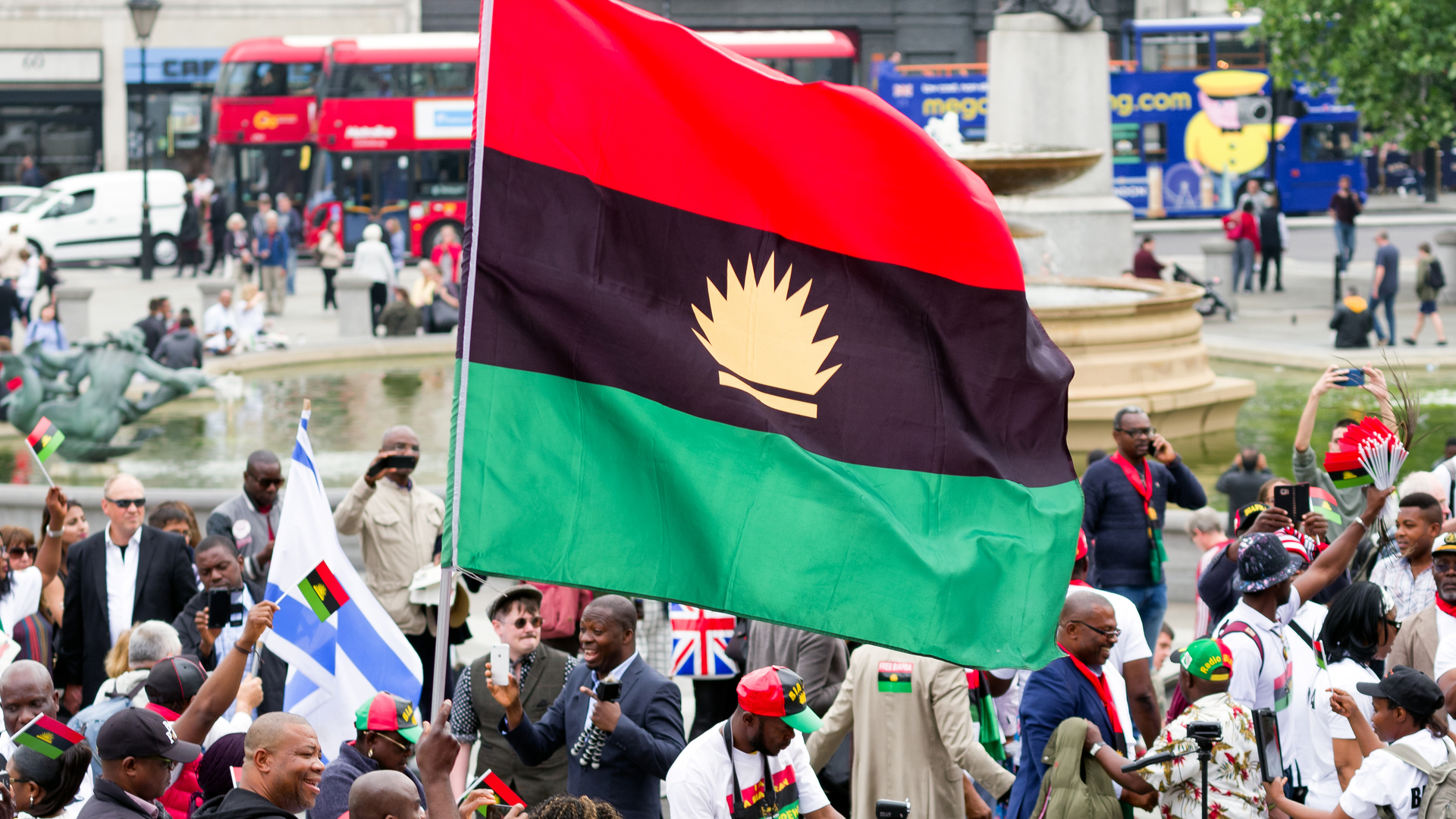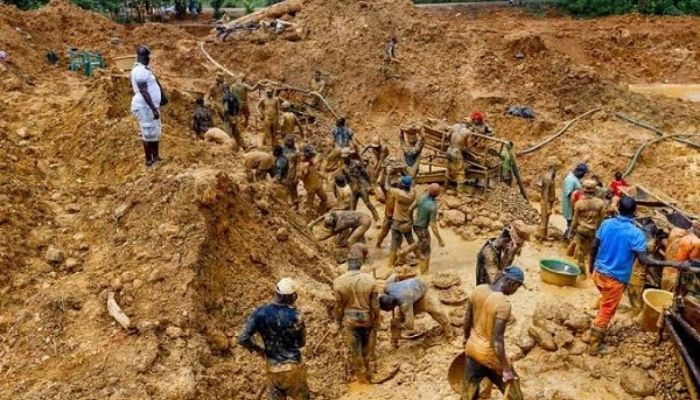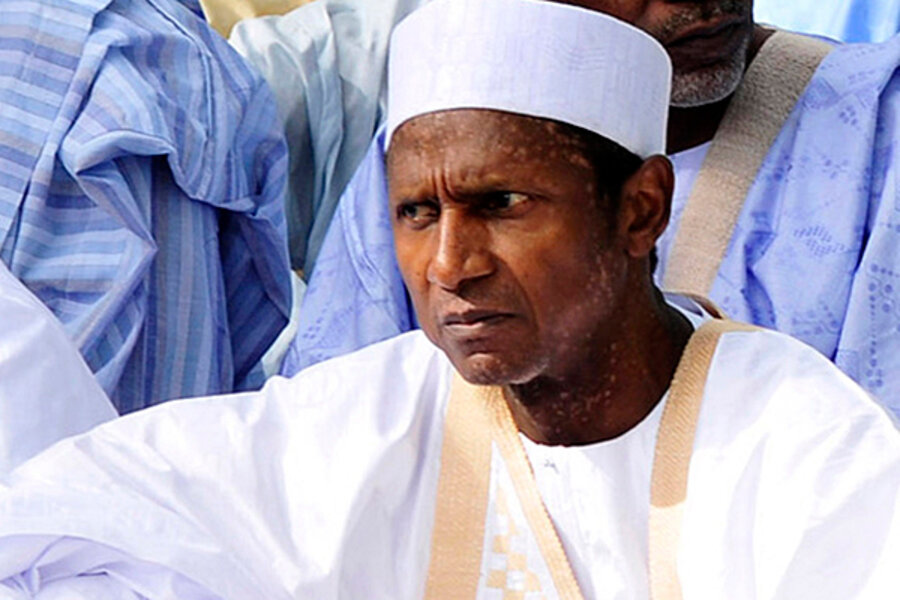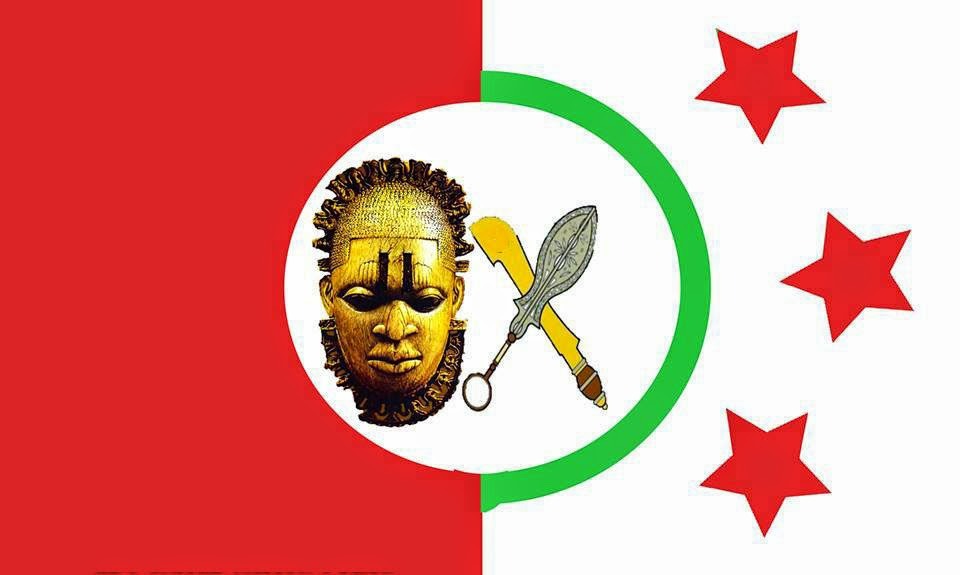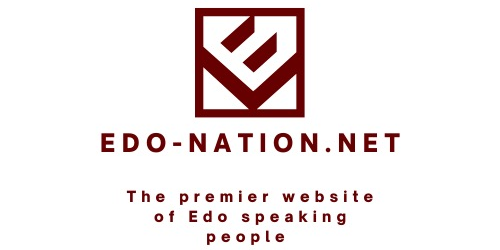Fellow Nigerians, it gives me great pleasure to address you on this forty-third anniversary of our national independence. By established tradition, this is a day of sober reflection on nationhood, the state of our society, and the march of our peoples through history. Quite naturally, this reflection is mostly flavoured by the surrounding circumstances of events that have most recently affected our life as a nation.
In this regard, today's National Day has come only a few months after the milestone event of a successful civilian-to-civilian transition of government. Let me once again extend my heartfelt appreciation to all Nigerians, for the confidence reposed in our Administration by renewing our mandate for another four years. As I clearly indicated in my inauguration speech, those of us elected and appointed at this critical juncture, must see this as a unique opportunity for service and not an opportunity for priviledges. And I call on all Nigerians to join me in serving Nigeria with all our hearts, all our heads and all our hands. By serving Nigeria, we serve our Creator, the Lord God Almighty.
Today's anniversary is the third in the age of wisdom of the nation. God has been good and kind to us individually and collectively. We owe God much gratitude for preserving our nation so far. We should all thank God Almighty for seeing us through the last four years, during which, in spite of harsh realities we did not despair, in spite of gloom we did not lose hope, in spite of frustrations wedid not give up. We looked up even when things were down, we counted our blessings even when things looked bleak, and we persistently looked forward in the face of setbacks. We were surrounded by so much darkness, yet we saw light. By and large, our vision has held, we have remained on track, and we have remained focused on the goal of rebuilding Nigeria. In fact, if the transition to democratic rule in 1999 was the new dawn, we can now with confidence say that the new day has indeed broken. So it is time for us to rise and put all impediments aside, and work.
Fellow Nigerians, please join me in dedicating this National Day to the birth of optimism in our land. To have optimism in our land we must all have optimism in our minds, in our soul, and in our spirit. That is not to say that we do not recognise the grounds for the pessimism that has riddled our national thinking, particularly in the last decade. It was difficult to argue against the pessimism predicated on the circumstances that we met in May 1999. Things were so bad that the pessimists saw no chance at all of positive action, and many of them were predicting the demise of the nation.
Yes, our infrastructure was rotten, to put it mildly. Our social system was in disarray after suffering years of maladministration, and our national psyche traumatised by tyranical rule. This depressing outlook was confirmed - and even deepened - by our experience when we assumed office and began to look into the details.
With hindsight, pessimism may even have served us well, by being a challenge to think and come up with action where no action was considered feasible. We have since gone further to take stock of the decay and degradation of our society, and we have moved to reposition our nation so as to harness the human and material potential of this country for development, progress and posterity.
In the process of rebuilding our nation, much of last four years has been spent on digging for a solid foundation. Now we are all set for action on setting the foundation. We have identified the fundamental sources of failure. We have identified new voices, islands of integrity, and we have identified opportunities for growth and development. We have also identified viable and sustainable alternative policies and programmes to address the deficiencies of the past. This is the essence of our campaign slogan of 'Continuity, Stability and Progress', which, we are pleased to note, did resonate positively among the electorate, enough for you to renew our mandate. We are emboldened to march confidently on the road to progress, our commitment is total and unequivocal. But we must shed the burden of pessimism which, for whatever its value may have been, we must now put behind us.
Fellow Nigerians, only a few months ago, you will recall that the entire nation was nervous about the prospects of civilian-to-civilian transition because the prophets of doom were loud and clear with their predictions of an impending Armageddon. Thanks be to God, they have been proven wrong. Every man, woman and child in this country is entitled to celebrate this defeat of pessimism that has now confirmed the establishment of democracy as the best option for governance in our land.
Fellow Nigerians, we promise to uphold the spirit of optimism with which Nigerians conducted themselves in the elections and accepted the results, some of which had to go through due legal processes. It is with this spirit of optimism that we accept the challenge to deliver the dividends of democracy that will enhance the quality of life for all citizens. In the same vein, it is optimism that underpins the socio-economic reforms that we have embarked on, details of which have since been made public.
Fellow Nigerians, we need full scale optimism to deliver, for instance, the monetisation programme of our reform policy. Here we have a concept which is so rational and its benefits so obvious that many have wondered why it has not been thought of before now. The answer is, the idea has been a victim of pessimism, among other things. Pessimism that Government will not have the courage to think so clearly, pessimism that Nigerians cannot be trusted to implement it, in short, pessimism that it is too good to work.
Fellow Nigerians, let me assure you here and now that this time we are going to do it, and, by the grace of God, it will work!
We will not relent in our determination to implement reform programmes. Already key Ministries have received letters from me indicating the priority areas that will culminate in the reforms aimed at laying firm foundation for sustainable, socio-economic transformation, as well as eradiation of poverty. Our reform programme puts the people first. The highlight includes the following sectors:
Governance: We must have responsible, sensitive and transparent leadership that can deliver service while enjoying the full trust of the citizens;
Anti-Corruption: The crusade here will continue until the Nigerian society is rid of this major impediment to our economic prosperity and development, and there will be no sacred cow;
Agriculture and Food Security: We aim to reap the fruits of our land to the full so as to enhance income from agricultural products, as well as attain the objective of making food available to Nigerians at prices they can afford;
Infrastructure: Rehabilitation of our infrastructure is top priority, with particular attention being paid to roads, water supply, and energy generated in sufficient amount as to satisfy the needs of our ambition for rapid economic development;
Industry: A program for the development of small and medium scale enterprises will strengthen this sector to become a backbone of our economy, while providing jobs for our youths;
Financial Regulation: In our efforts to encourage investment in Nigeria, we have worked hard to provide conducive environment for the investor and his investment. But on no account should this be interpreted to mean that our Administration condones such criminal activities as foreign exchange manipulation, under-invoicing and money laundering which generally compromise our financial system. The newly established Financial Crimes Commission has full authority to identify and deal effectively with any persons who so systematically abuse our financial system. Such persons, whatever their declared investment intentions, are not - and will not be - welcome in our midst;
_Pension Reform: I am fully aware of the problems of our pensioners. This is why we have decided to move away from the unbearable burden of pension by government alone, to a situation where pension payment would be assured as and when due, through a national contributory pension scheme. A strategy for clearing the heavy backlog will also be worked out.
Fellow Nigerians, our reform programme will entail sacrifice in one form or the other, but I can assure you that this sacrifice will have manifold returns from the envisaged improvements in our social life and economic fortunes. Furthermore, it will require attitudinal change for which I have been campaigning ever since I took up office. If our leadership principle puts you, Nigerians first, we are hoping that everyone of you will in return put Nigeria first in your attitude to work and service, in your relationship with fellow Nigerians, and in your conduct within your communities. This is a moral imperative as well as being essential for the efficient functioning of our social and economic system. We need all hands on deck, for the sake of our nation today, tomorrow and for as long as the service of the nation demands it.
Last year, I set out on the theme of 'I see hope home and abroad. This year, I see a new Nigeria - a Nigeria to give satisfaction to all of us.
Let me appeal to those persistently pessimistic Nigerians; those who cannot see anything good nor have anything positive to say about their fellow citizens and their country, at home or in the scheme of things in the world. 1 include those that never give government policies a chance to work and those that always begin their analysis and comments with negative ideas and postures. I have in my short span of life, seen tangled lives made straight, wrongs righted, marriages remade, friends reconciled, families re-united, businesses and business relations revived, desolate structures rehabilitated and refurbished, faith rekindled, and despair turned to hope. It is all in the mind, it is a matter of attitude, and a touch of God. Any situation and any person can be changed. Even Nigeria can be changed. And it is changing.
If you cannot love Nigeria, and be positive about your country, and make constructive contributions to its sustenance, unity, development, and growth, I should ask 'what sort of a Nigerian are you?' Sure, there are problem and fears. The measure of patriotism and dedication to common and collective good is not to become pessimistic and cynical, but to join hands to work hard for the nation, the community, family and individual. That is how to build a nation.
The less optimistic Nigerians can change and be changed to see the glass as half-full, rather than half-empty. What we need is faith and belief in God, in ourselves, in Nigeria and in what is Nigerian. I believe in the innate goodness of an average Nigerian which should be developed and utilised for building of a peaceful, stable, secure, just, equitable, prosperous and corruption-free society.
We must as a people, look back and ensure that now and in future, we do not repeat the mistakes of the past. But our vision, our sight and our attention should be placed on a high pedestal and on high horizon such that by the end of the first decade of this century, Nigeria reaches its trajectory for sustainable development, stability and growth. This is not a pipe dream. It is an attainable objective and I challenge all Nigerians to join hands, leave the frustrations of the past behind, and be part of this robust movement for a greater Nigeria. Together, in such a spirit of confidence in ourselves, faith in God and dynamic optimism, we can make the difficult easy, the impossible possible, and miracles to happen.
May God bless the Federal Republic of Nigeria, and all Nigerians.
Full Text of the 43rd Independent Anniversary Address by President Olusegun Obasanjo October 1, 2003.







